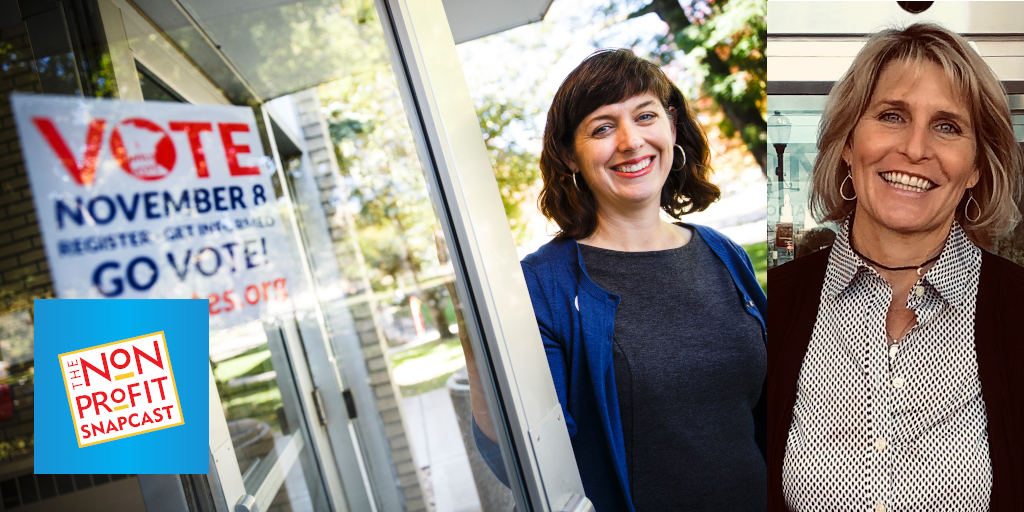Mickey talks with Katharine Hill and Tanya Rhodes Smith about Political Social Work, and the role all nonprofits should play in encouraging their stakeholders to vote. Our conversation covers:
- Nonpartisan voter engagement is legal, ethical and professional and central to building power in the communities that nonprofits work within.
- Communities with high voter turnout report greater well-being, and more resources and attention from elected officials.
- Presidential elections get most attention but voting in every election is critical. State and municipal elections have the lowest turnout yet the decisions are not less important. Issues like education, policing policy, housing, clean water, transportation, voting, healthcare, etc. all have state and local implications.
- Structural barriers to voting- voter id laws, felon disenfranchisement laws, confusing and complicated voter registration requirements, etc- are not accidental. They are intended to limit power and access. Social workers (and people who work in nonprofits more generally) should work to overturn these laws so that voting is more accessible
- Voting is an act of power yet most people don’t vote because they don’t trust the system or believe their vote doesn’t matter. Nonprofits can help change this narrative by asking people to vote and sharing why it matters. Nonvoters are more likely to be younger, less educated, less wealthy and nonwhite so their voice and power is diminished relative to voters who are more likely to be educated, white and wealthier.
- Integrating voter engagement into nonprofit settings isn’t hard to do- it can be built into activities and settings that already exist.
- There are great resources out there to support people who want to do this (Voting Is Social Work, Nonprofit Vote, TurboVote, Vote.org, League of Women Voters, etc).
We welcome support of the Nonprofit SnapCast via Patreon.
We welcome your questions and feedback via The Nonprofit Snapshot website.

